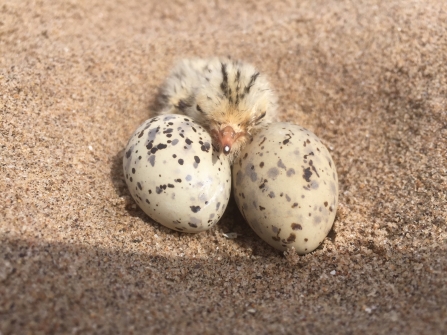Lincolnshire Wildlife Trust nature reserves are amongst the richest places for wildlife in Lincolnshire; they are home to some of the rarest species found in the county. Visitors are being asked to stay alert and stay on paths to ensure that birds and other wildlife aren’t disturbed.
During the period of restricted travel, wildlife hasn’t had to adapt to the presence of humans. They’ve responded to the relative peace and quiet by moving into new areas and nesting where they wouldn’t usually nest.
Birds that nest on the ground are particularly vulnerable. Skylarks and meadow pipits nest in small hollows lined with grass and leaves. Instead of being well away from visitors, these nests may be on the grassy edges of paths.
On the coast, little terns and ringed plovers also nest on the ground, by scraping a shallow hollow in the sand. And even those which nest in trees and hedges such as yellowhammers and nightingales could be nesting in pathside hedgerows rather than in more secluded locations.

